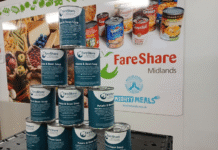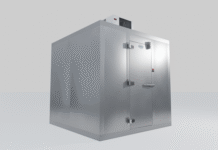The Indian festive seasons have arrived and many people have friends and relatives visiting them after a long time. So, do you have any plans for how to welcome your guests this Diwali? In Indian society, we have a ritual of gifting fancy kind of boxes of sweets or snacks or dry fruits to our dear ones. But, have you ever thought of whether these food items are safe and hygienic or how these boxes are made in the packaging plants? The pandemic gave us many lessons about hygiene and health, and we all need to be particular about how much or what kind of food packaging will be safe for us, our family, and friends.
Sustainable packaging is no longer a nice-to-have, it’s a must-have for any brand looking to future-proof its operations against the rising tide of consumer interest and scrutiny. Sustainability is a multifaceted concept, and the perception of the word ‘sustainable’ is usually different for each business model. However, sustainable food packaging is defined as the use of packaging that seeks to reduce its environmental impact throughout its life cycle while maintaining food safety and quality.
How should the packaging industry deal with food packaging sustainability this Diwali?
The first step toward any sustainable packaging solution relies on reducing the number of materials being used. This tackles the issue at its source – the three R’s (reduce, reuse, recycle). As there will be a reduction in consumption, it will be easier for the entire supply chain to deal with less waste. This will not only reduce the packaging cost but also reduce the energy used and the by-products resulting from the disposal process.
Innovative sustainable food packaging aims to reduce food waste and loss by preserving food quality and maintaining food safety by preventing food-borne diseases and food chemical contamination. To achieve sustainable packaging, the entire thrust is to choose a food-safe and non-toxic paper to protect products from biological, chemical, and distribution damages.
If it’s manufactured using clean and efficient production technologies, it offers a hygienic environment for the product by restricting the contamination of food particles. However, it is important to see beyond paper to achieve sustainable packaging solutions. Is it sourced, manufactured, transported, and recycled using the least carbon footprint? This is where the need for technology upgradation in tune with sustainable production is required, and automation plays a vital role in ensuring the least human interaction to avoid contamination.
Zhongke India’s role in automation
Zhongke India, a manufacturer of machines for making gift boxes and other solid board boxes, is known for automation – as its machines offer the best kind of automation, are pre-set enabled to minimize wastage, and are suitable for sustainable production with high energy efficiency. In a conversation with Zhongke India, we learned that the company is participating in the IndiaCorr Expo, which will take place in Mumbai from 6-8 October, where they will be showcasing the ZK 5540C automatic box forming machine in Hall 4, Stand A3.

This machine can run cardboard, Kraft paper and liners, and corrugated sheets to form boxes at a speed of 2500 pieces an hour. With the flexibility to run various styles and simple production processes, the machine is very popular, especially in the sweets industry, to support the surges in demand during festive seasons like Diwali.
IndiFoodBev — authentic, impactful and influential
An English-language food and beverage processing and packaging industry B2B platform in print and web, IndiFoodBev is in its third year of publication. It is said that the Indian food and beverage industries represent approximately US$ 900 billion in revenues which implies more than 20% of the country’s GDP. Eliminating the wastage on the farmside can help to deliver more protein to a higher number of the population apart from generating sizable exports. The savings in soil, seeds, water, fertilizer, energy and ultimately food and nutrition could be the most immense contribution that country is poised to make to the moderation of climate change.
To improve your marketing and grow sales to the food and beverage processing and packaging industry, talk to us. Our research and consulting company IppStar [www.ippstar.org] can assess your potential and addressable markets in light of the competition. We can discuss marketing, communication, and sales strategies for market entry and growth.
Suppliers and service providers with a strategy and budget for targeted marketing can discuss using our hybrid print, web, video, and social media channels to create brand recognition linked to market relevance. Our technical writers are ready to meet you and your customers for content.
The second largest producer of fruit and vegetables in the world is continuously expanding processing capacities and delivery systems with appropriate innovative technologies. We cover product and consumer trends, nutrition, processing, research, equipment and packaging from farm to thali. Get our 2025 media kit and recalibrate your role in this dynamic market. Enhance your visibility and relevance to existing markets and turn potential customers into conversations. Ask for a sample copy of our bi-monthly in print or our weekly IndiFoodBev eZine each Wednesday.
For editorial info@ippgroup.in — for advertisement ads1@ippgroup.in and for subscriptions subscription@ippgroup.in
Naresh Khanna – 10 February 2025
Subscribe Now











